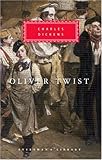Estimated reading time: 3 minute(s)
 Not sure if you have read the Charles Dickens work Oliver Twist, or, if you have that it has been recent enough that you would recall the plot in any detail. The boys and I are almost three quarters of the way through it, and rapt by the story of this gentle young boy’s circumstantially unfortunate life. (Though at this point of the novel, things have “picked up a bit”) It’s been a very interesting look into the specific time in history, the people of England, and on a larger scale, human nature in general, all levels of good and bad.
Not sure if you have read the Charles Dickens work Oliver Twist, or, if you have that it has been recent enough that you would recall the plot in any detail. The boys and I are almost three quarters of the way through it, and rapt by the story of this gentle young boy’s circumstantially unfortunate life. (Though at this point of the novel, things have “picked up a bit”) It’s been a very interesting look into the specific time in history, the people of England, and on a larger scale, human nature in general, all levels of good and bad.
We read the following paragraph last night, and it struck me as an interesting observation on how we perceive the world around us. It follows another traumatic period for Oliver, where he was sure he would lose to disease one of the only people who were ever kind to him, and she especially so. After she recovered, these were Oliver’s (and the author/narrator’s) thoughts:
Oliver rose next morning in better heart, and went about his usual early occupations with more hope and pleasure than he had known for many days. The birds were once more hung out, to sing, in their old places; and the sweetest wild flowers that could be found, were once more gathered to gladden Rose with their beauty. The melancholy which had seemed to the sad eyes of the anxious boy to hang, for days past, over every object, beautiful as all were, was dispelled by magic. The dew seemed to sparkle more brightly on the green leaves; the air to rustle among them with a sweeter music; and the sky itself to look more blue and bright. Such is the influence which the condition of our own thoughts, exercises, even over the appearance of external objects. Men who look on nature, and their fellow-men, and cry that all is dark and gloomy, are in the right; but the sombre colours are reflections from their own jaundiced eyes and hearts. The real hues are delicate, and need a clearer vision.
The lines I emphasized were the ones that we also highlighted last night after reading them. It’s interesting to think that the world we perceive around us is more a creation of our own heart and mind and eyes than it is “reality”. (Philosophically of course, it’s difficult to then distinguish what is “reality” and what is, in fact, our reality. Whether “real” or not, it is all that we can perceive, although it is possible to change based on our change of heart and mind, I suppose.)
It reminds me a bit of what Jesus said, as told by Luke:
“No one lights a lamp, then hides it in a drawer. It’s put on a lamp stand so those entering the room have light to see where they’re going. Your eye is a lamp, lighting up your whole body. If you live wide-eyed in wonder and belief, your body fills up with light. If you live squinty-eyed in greed and distrust, your body is a dank cellar. Keep your eyes open, your lamp burning, so you don’t get musty and murky. Keep your life as well-lighted as your best-lighted room.”
Luke 11:33-36 MSG
You’ve heard of rose-colored glasses. Much the same idea. The world is as we see it, and we see it as our current condition allows us to see it. Fascinating to me that we are both affected by our surroundings and circumstances, and equally able to “affect” them, even if only in our own perception of them.
May you see the real, delicate hues of your world more clearly today.
